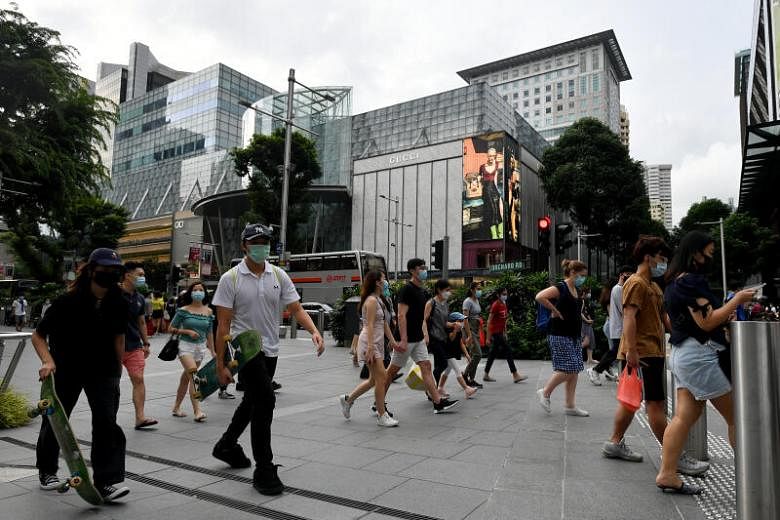SINGAPORE - Experts are optimistic that Singapore can avoid a second wave of Covid-19 cases as long as people do not take unnecessary risks, like gathering in large groups for parties or meals.
But even if that happens, Singapore will likely be able to figure out the source of the resurgence and implement a "sectorial shutdown rather than another comprehensive lockdown like a circuit breaker", said Professor Teo Yik Ying, dean of the National University of Singapore's (NUS) Saw Swee Hock School of Public Health.
Speaking at a Covid-19 webinar hosted by The Straits Times on Thursday (July 23), he also said Singapore has a "very good chance" of keeping the number of community cases to 10 or 20 a day if everyone sticks to the rules.
Pointing to countries facing a renewed surge, he noted that some flare-ups have been linked to instances of protocols being disregarded, like letting people into the country without mandatory quarantine.
"In Singapore, I'd like to be a little bit more optimistic. Presently, our rules are still very well kept to," he said.
"People generally have been very cooperative. If you're on stay-home notice, you are required to spend 14 days (at home) after you return from travel overseas, and people generally follow these rules.
"Social distancing, mask wearing, I could see when I'm out in public places, most people follow these rules very properly."
But should people disregard the rules, Singapore can learn from countries that have experienced a resurgence, said Prof Teo.
Citing cases in Japan and South Korea that were linked to nightlife entertainment spots like clubs, he said Singapore could shut down places or activities that pose a higher risk.
As an example, he said the authorities could potentially order cinemas to shut again if clusters linked to cinema-goers emerge.
Another panel speaker, Professor Ooi Eng Eong, deputy director of Duke-NUS Medical School's emerging infectious diseases programme, said every measure, including Singapore's circuit breaker measures or the decision to shut down travel, has trade-offs.
"It helps to control the disease, but at the same time it costs society. It costs Singapore in the order of billions (of dollars) as we're now learning.
"Sometimes, the medicine can be more painful than the disease. So we just have to calibrate that, and I think we can go out now but just don't overdo it."
Prof Ooi said it is important for people to appreciate that the situation is fluid and changes quickly, requiring control measures to keep apace.
He noted that some have asked why Singaporeans were told not to wear masks in the early days of the outbreak but now, mask wearing is mandatory.
"But what if there comes a day when we say, okay, we can do without masks, and after that, coincidentally, a second wave happens?
"I don't think it's a matter of getting it right or wrong. Again, we're trying to adjust to this risk-benefit."
Prof Ooi added that what works today may not work tomorrow, but this "doesn't mean that what we're doing today is wrong".
Agreeing, Professor Dale Fisher, a senior infectious diseases expert at the National University Hospital (NUH), said it is not just about the numbers.
He noted that in Melbourne, capital of the Australian state of Victoria, the number of cases declined because of lockdowns, but soon after they were lifted, many nursing homes, meat-packing plants and other places reported new cases.
What is more important is a strong public health response and good community behaviour, and Singapore can tick each of these boxes, he said.
"It's very important just to keep people on track. When you start changing the community behaviours by loosening restrictions, that's when you take the risk," he said, adding that Singapore is still "one of the safest places" to be in during this pandemic.












